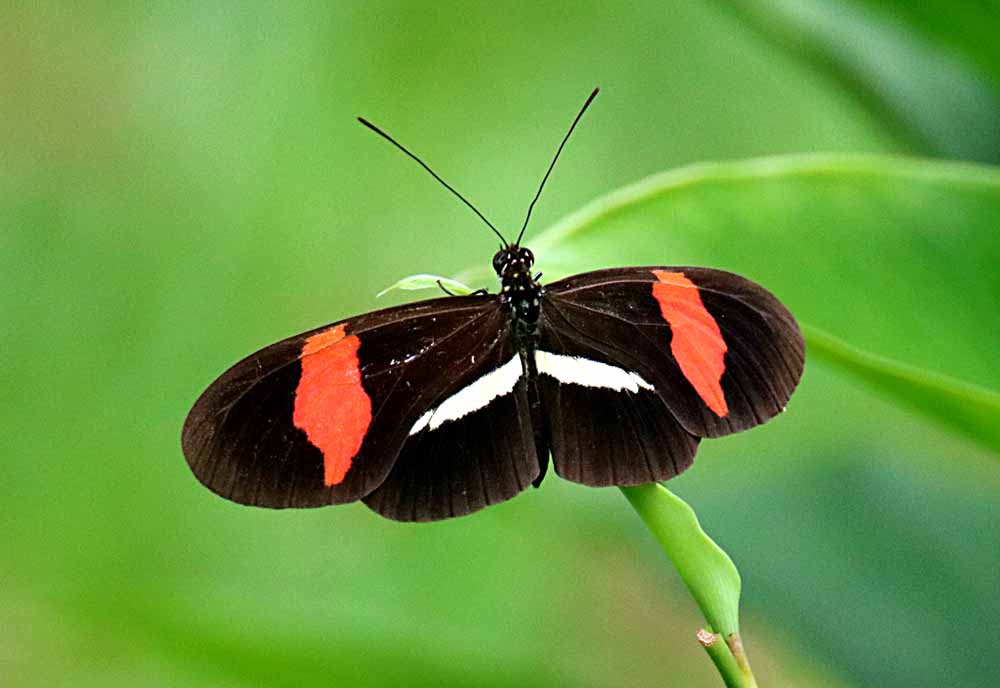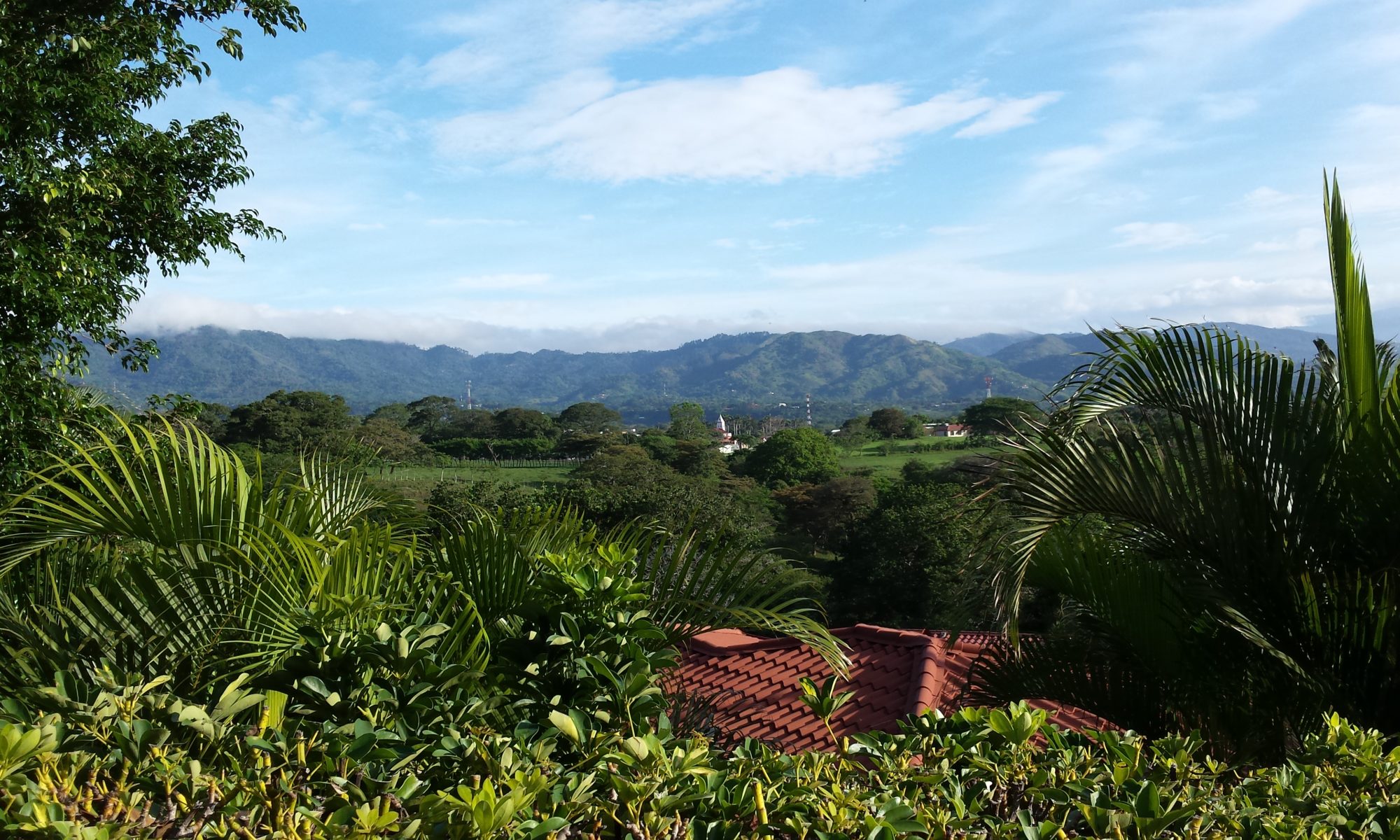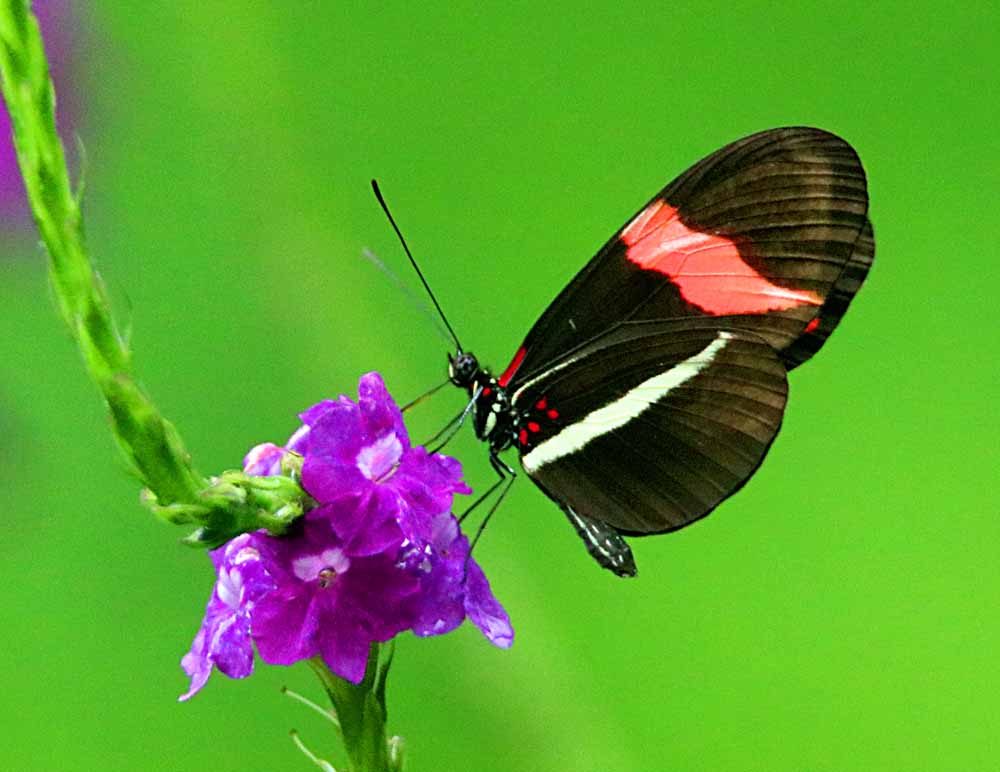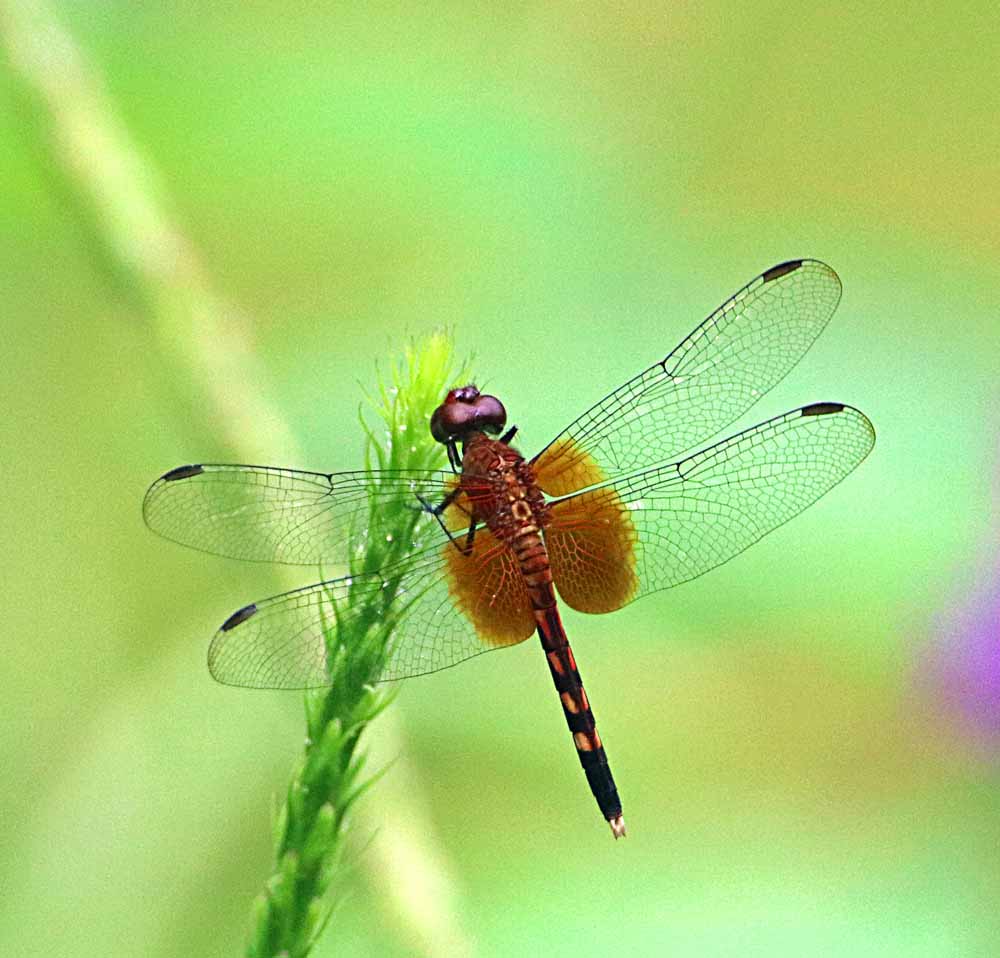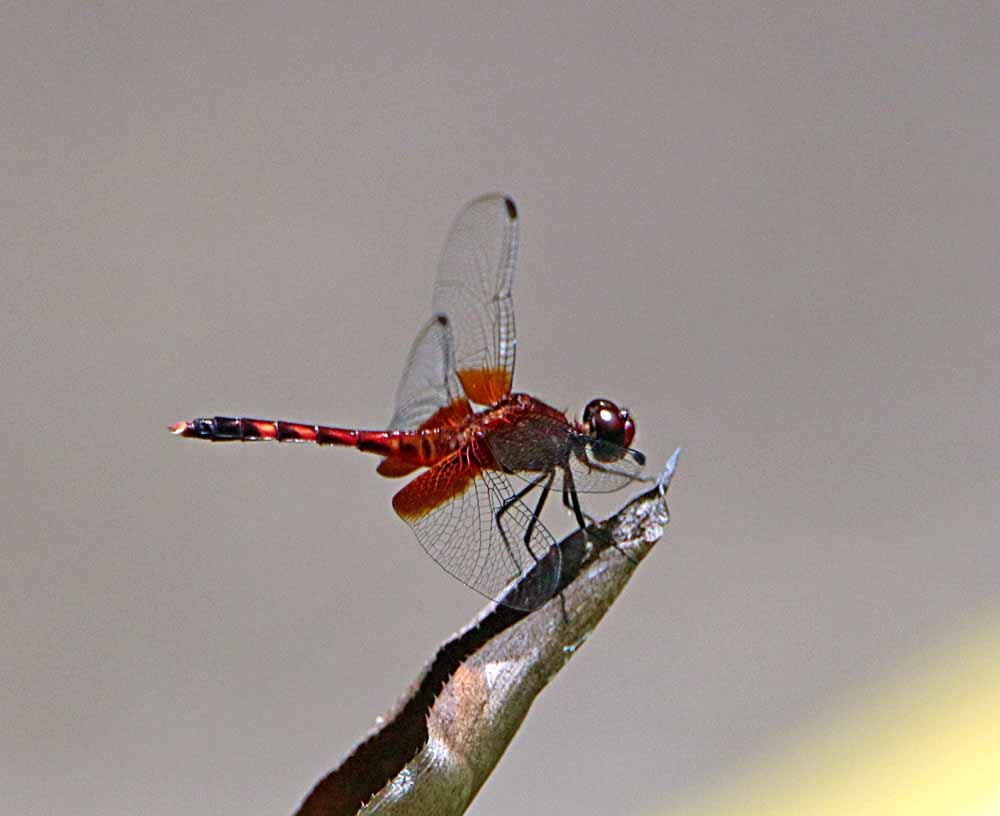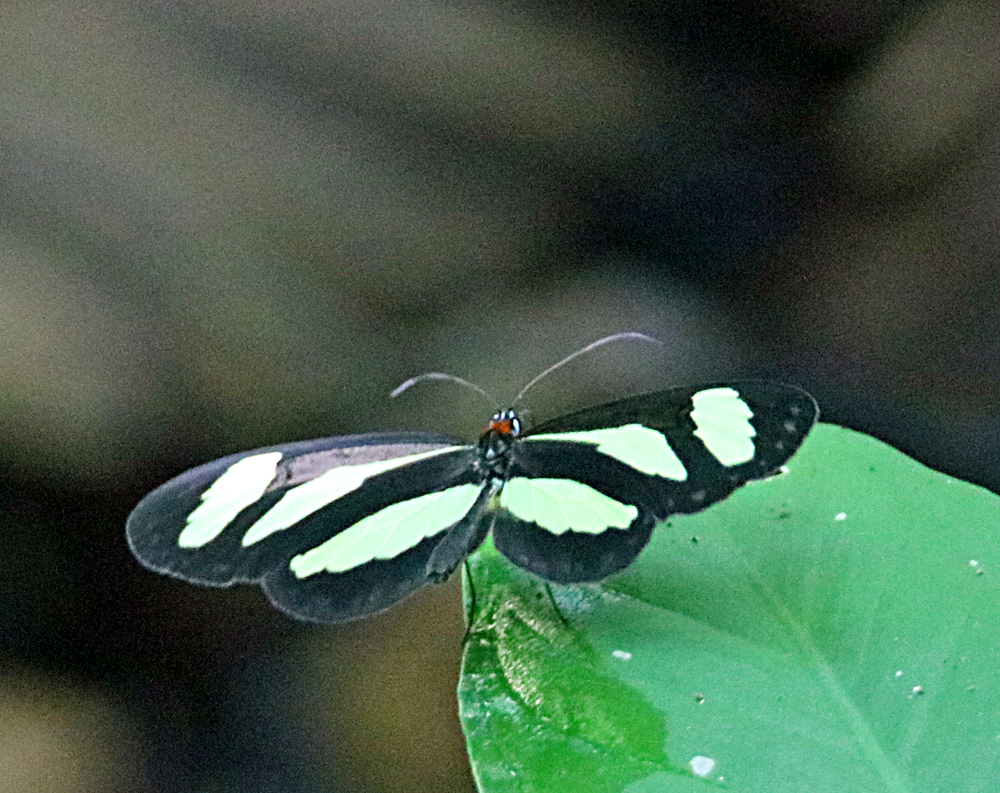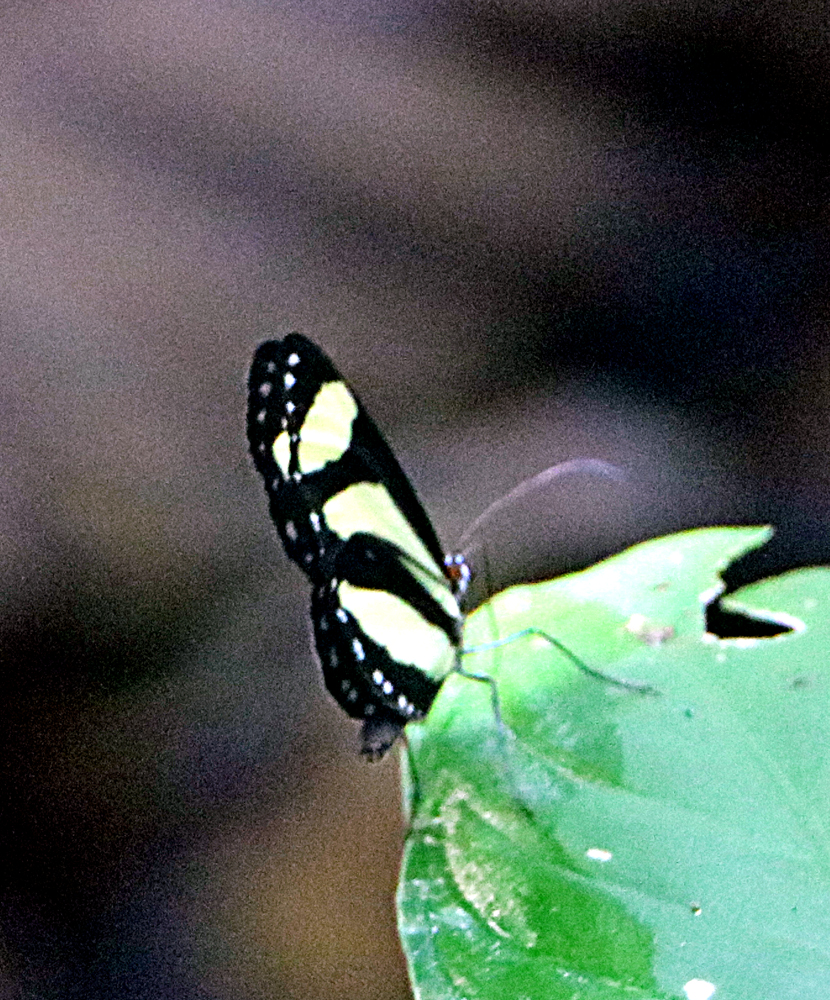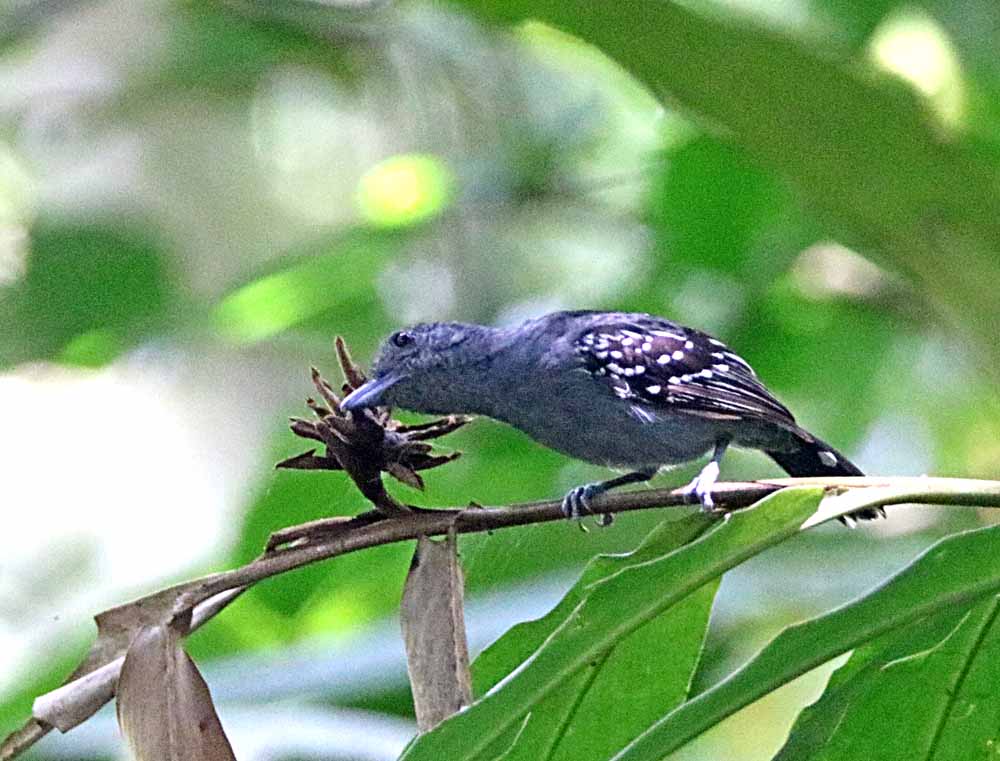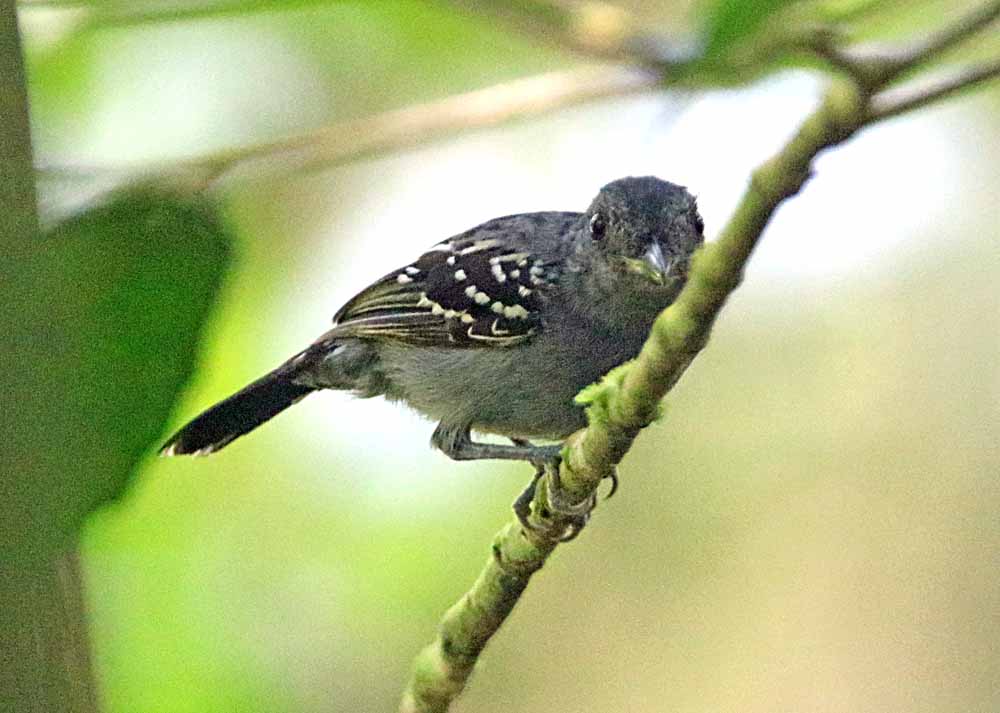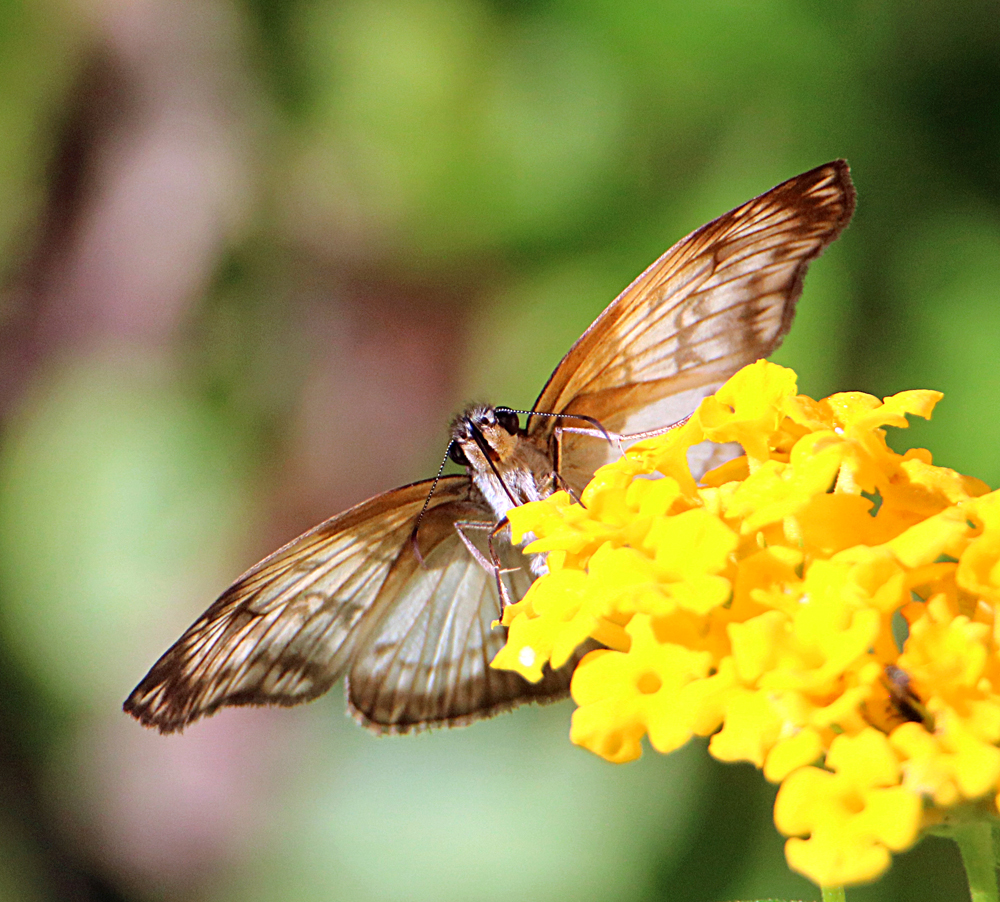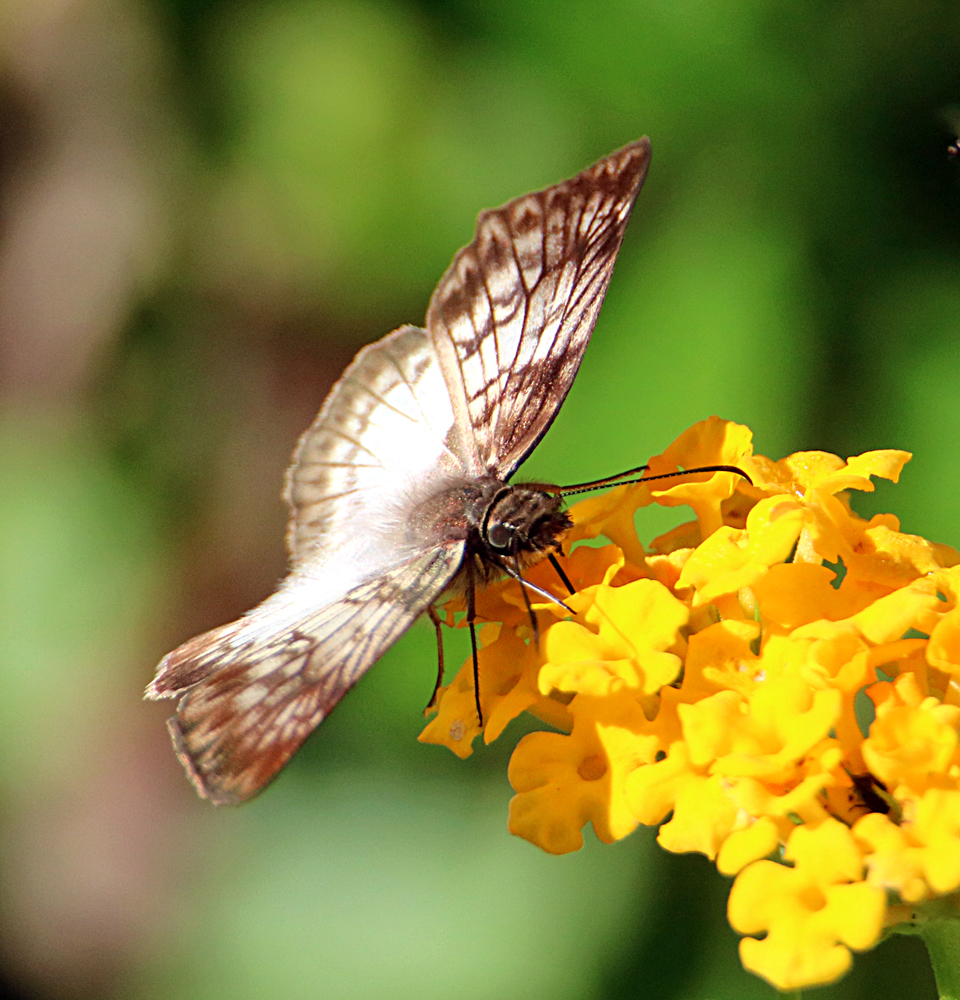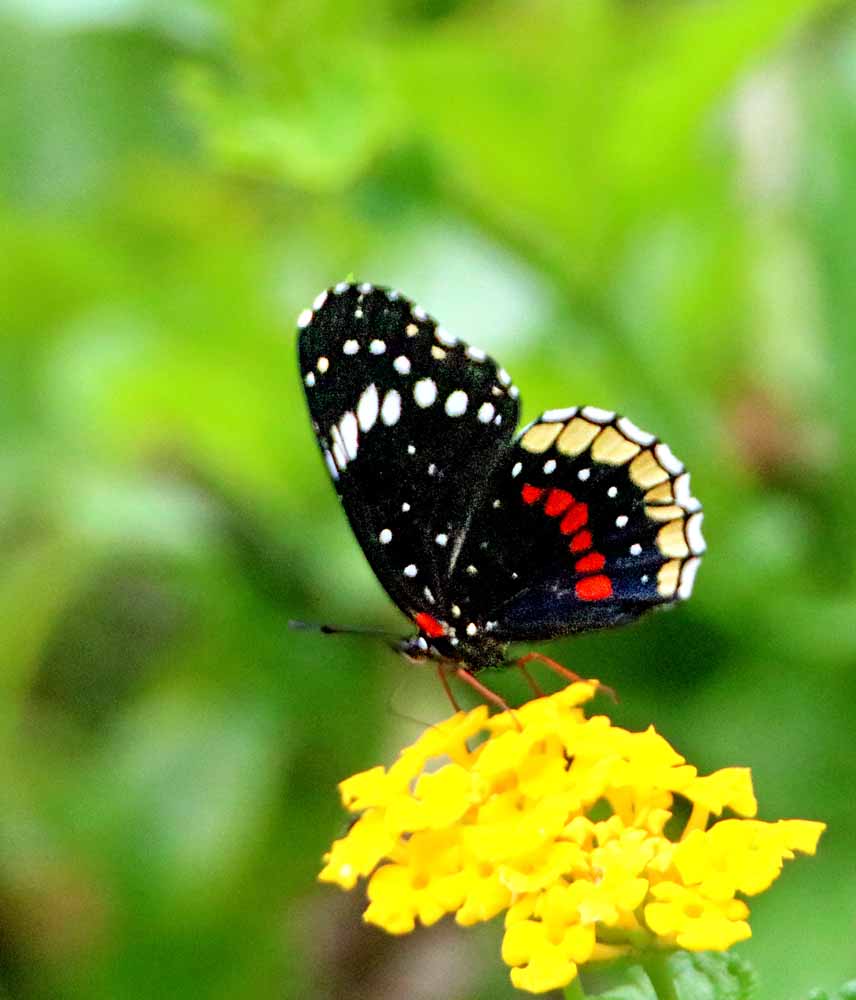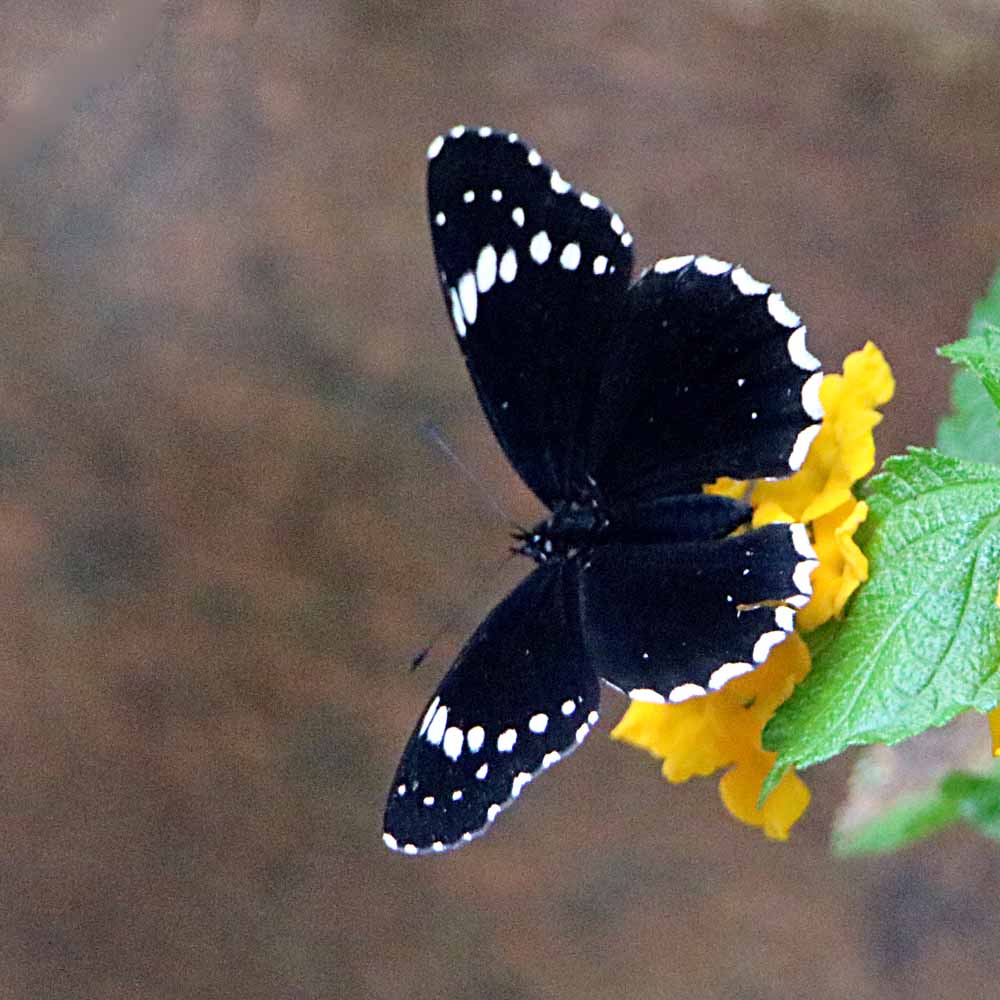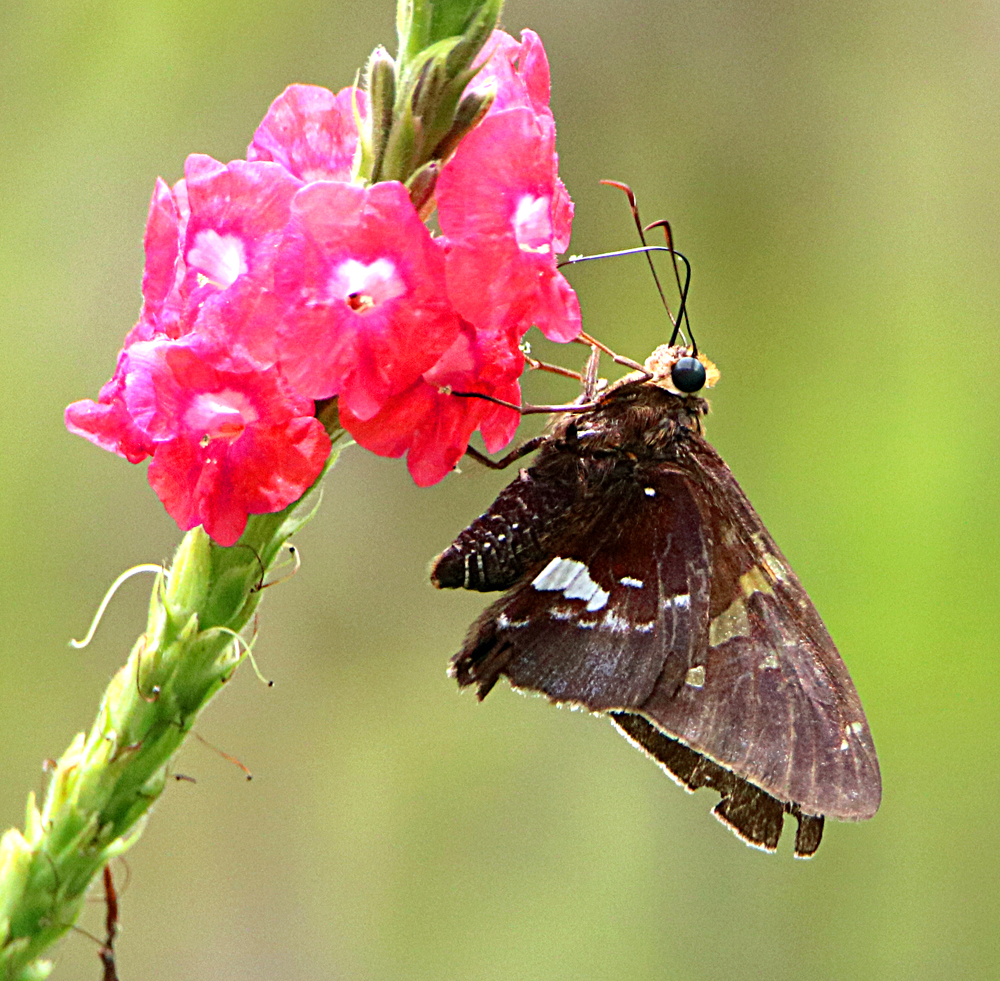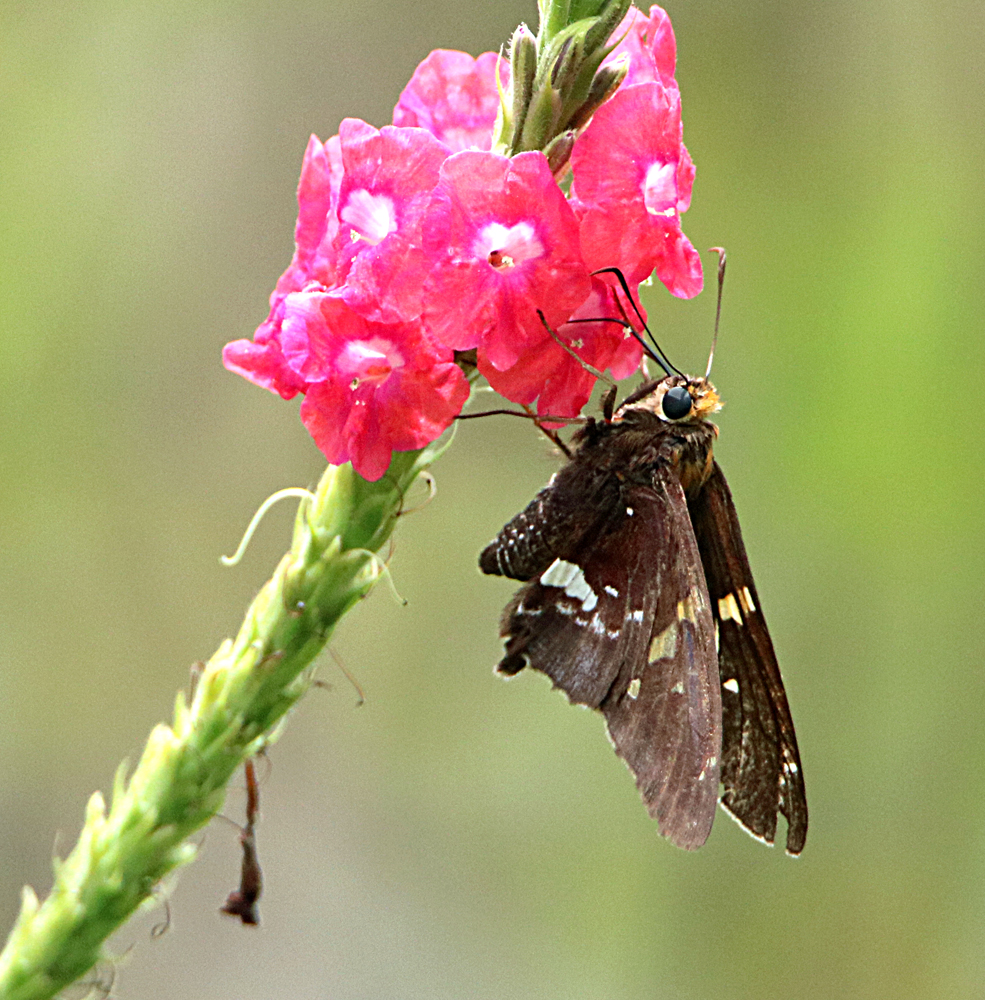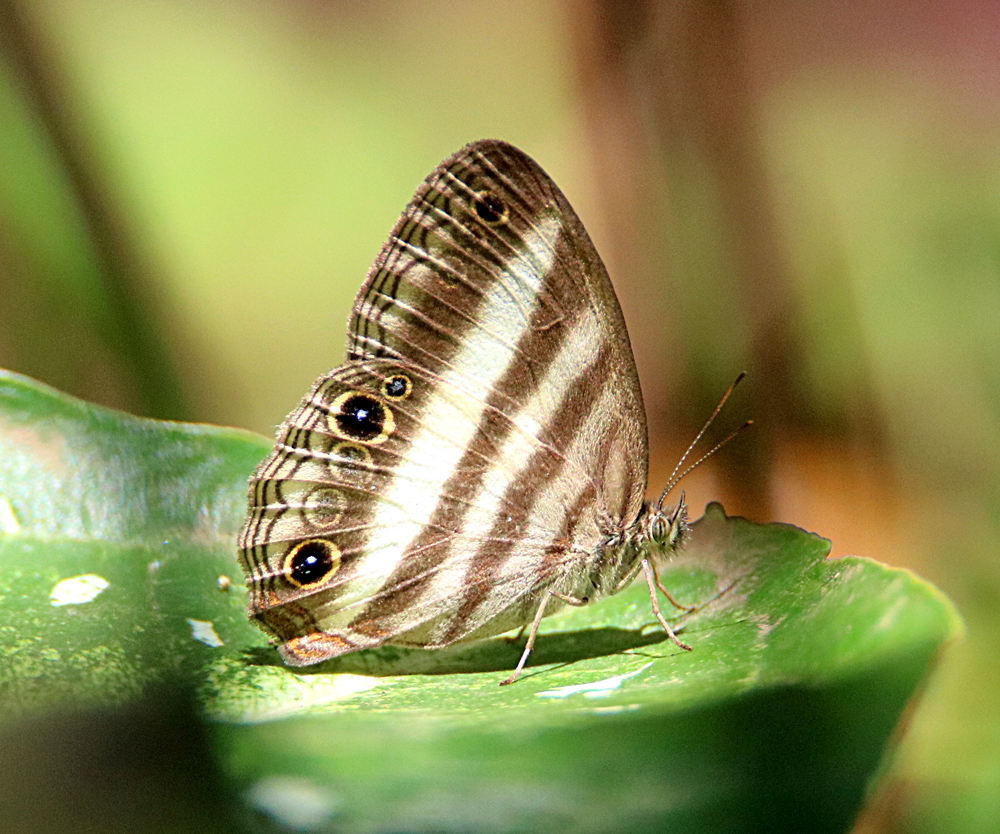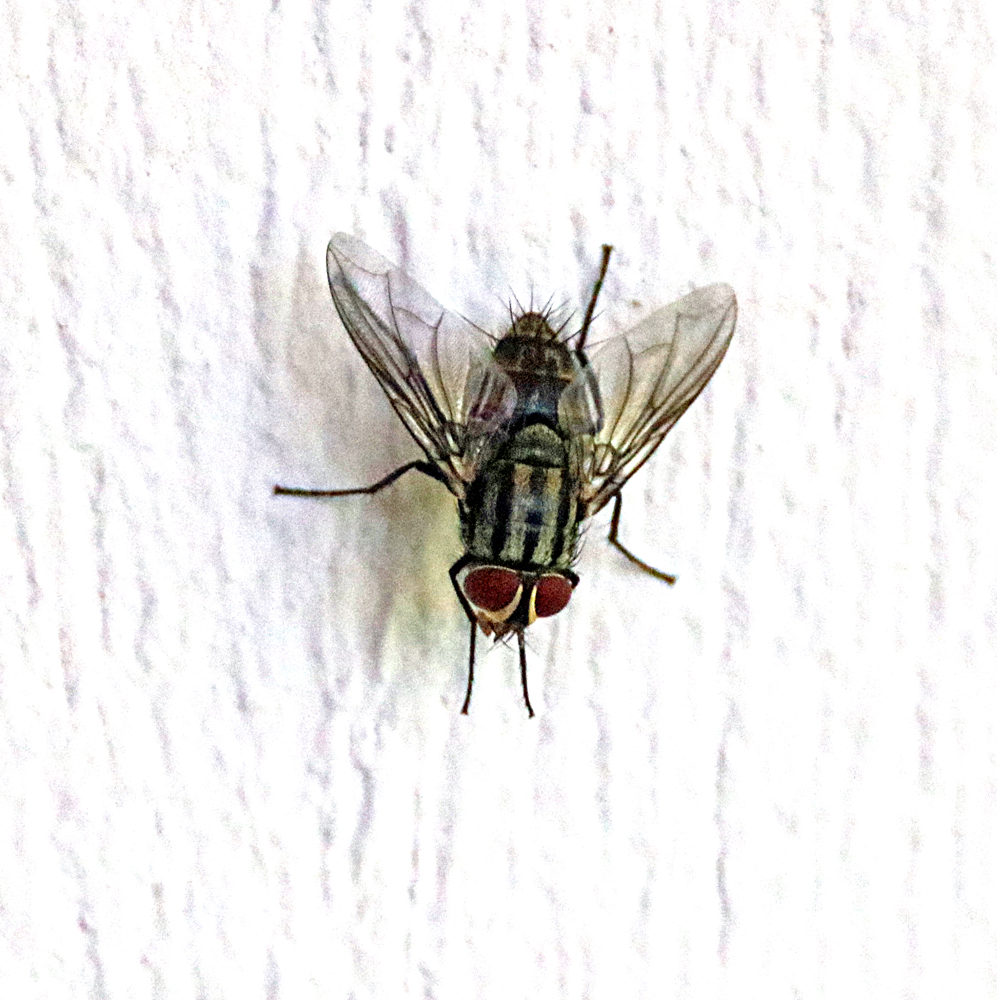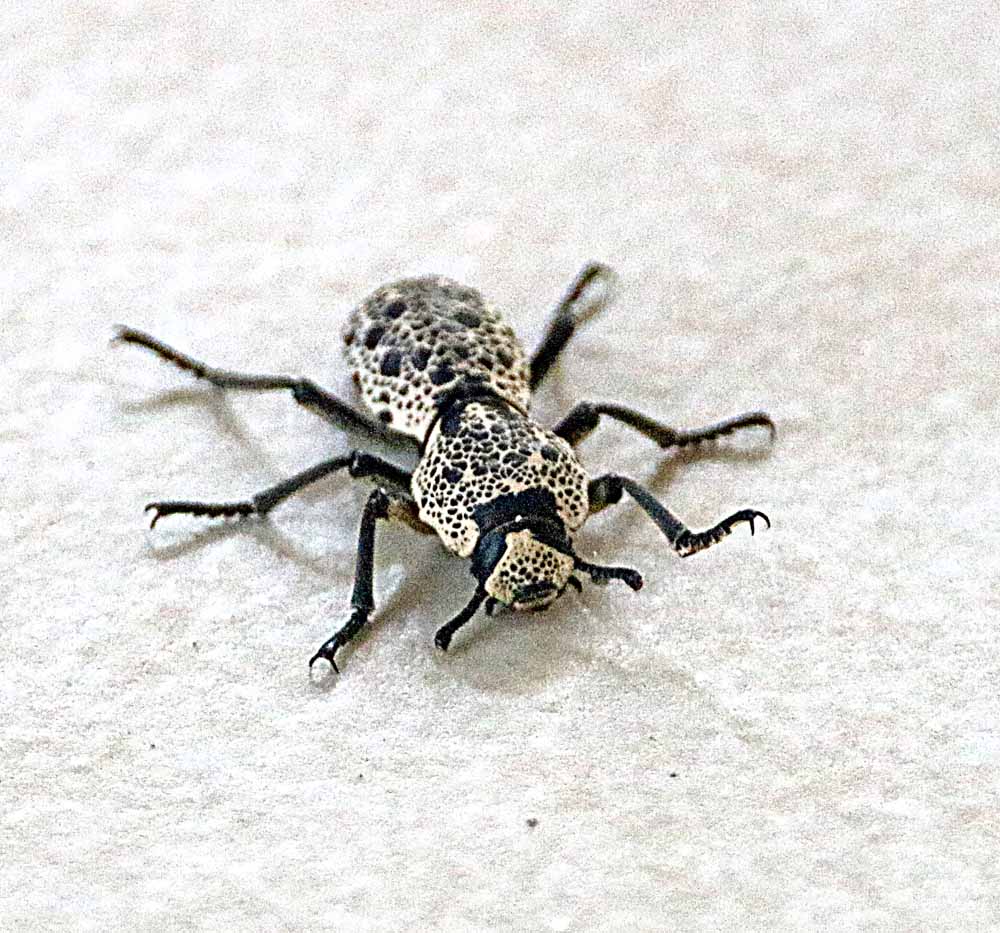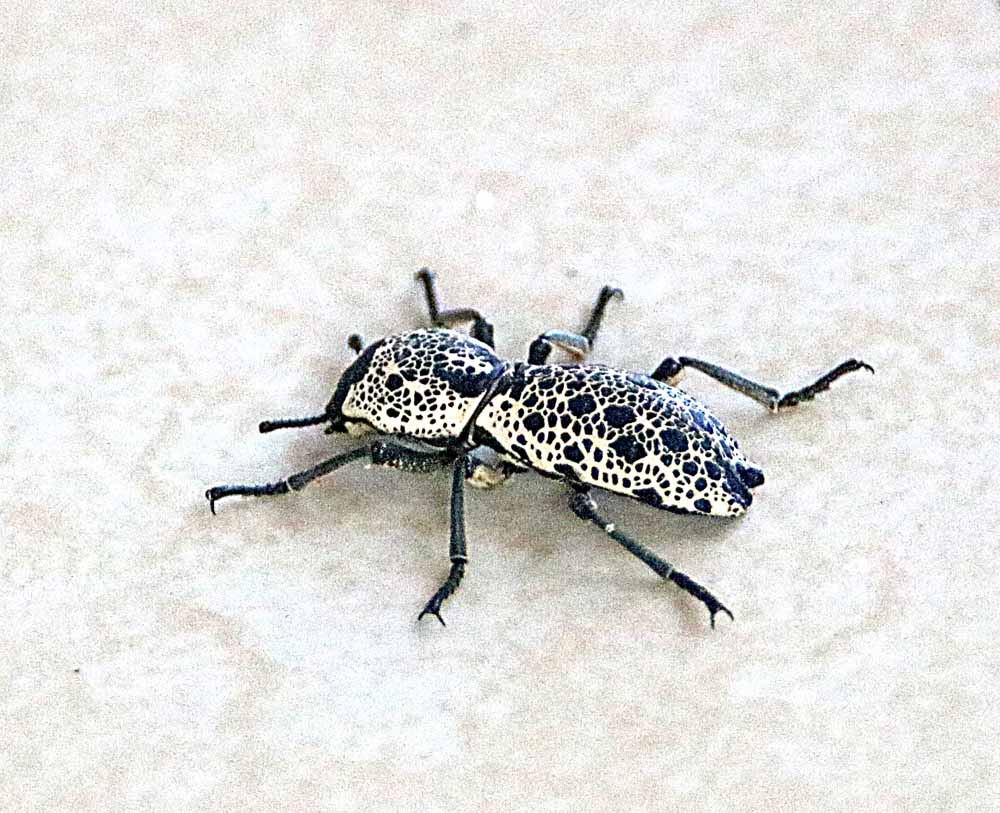This Heliconius erato (scientific name) has the English Common Name of “Red Postman” as opposed to the Heliconius melpomene rosina (my gallery link) which is often called just plain “Postman.” There is only a slight difference in both the red and the white bars on these two similar butterflies
And note that this one in today’s post has a very long Spanish Common Name here in Costa Rica: “Mariposa de Alas Largas de Bandas Carmesí.” See more of my many photos of this “Red Postman” Heliconius erato in that linked gallery. The two photos here were made near my room at Tortuga Lodge & Gardens, Tortuguero National Park, Limón, Costa Rica.
